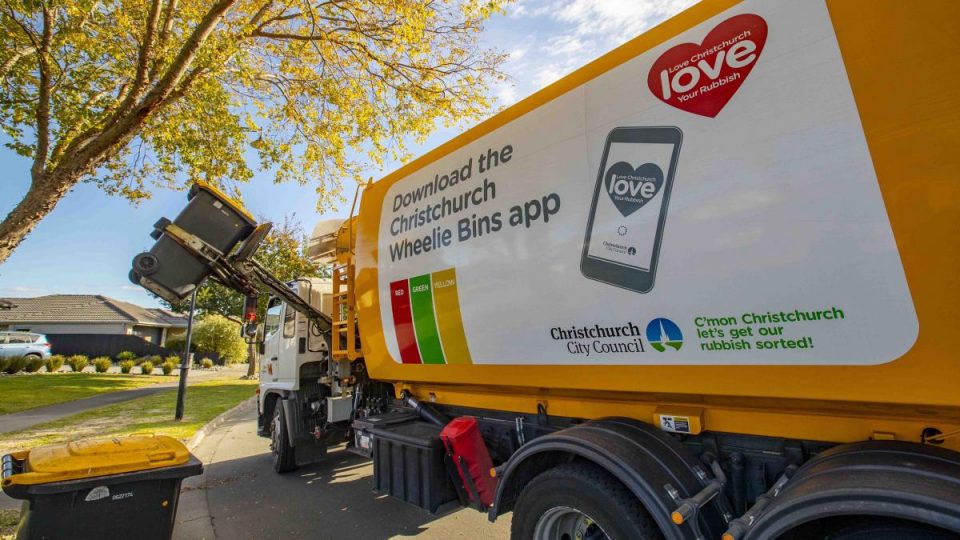Christchurch City Council’s draft Waste Management and Minimisation Plan 2020 will be considered by city councillors this week and a decision will be made on consulting with the community to get feedback and ideas.
More than 200,000 tonnes of waste is sent to landfill each year in Christchurch, the equivalent of 538kg per person, council head of three waters and waste Helen Beaumont said. Another 115,000 tonnes is processed through recycling and organics processing (composting) facilities, diverting about 65 per cent of household waste from landfill.
“Under the Waste Minimisation Act there is a requirement for the council to review its Waste Management and Minimisation Plan every six years. A review was completed in 2019 and a new plan, which provides strategic direction for the next six years, has been drafted.”
Beaumont said the previous plan in 2013 was developed during the earthquake recovery period.
“The 2020 plan builds on our achievements and outlines our goals of reducing our reliance on landfill, increasing opportunities to reuse materials, and working towards our vision of zero waste and a circular economy.
“The draft plan takes into account recent import restrictions in international recycling markets and Christchurch’s current reliance on overseas processing of our recycling products. It says, looking forward, the council will need to work more closely with businesses, industry and central Government to support waste diversion and develop innovative local solutions for resource recovery.
“The draft plan has been prepared to meet growing challenges in the waste, recycling and organics processing industries,” Beaumont said.
“It considers broader waste management and minimisation objectives – both at a city and regional level – and how the council can influence waste reduction in the commercial and industrial sectors.
“Minimising waste leads to a more efficient use of the earth’s finite resources, less pollution and less harm to our environment.
“Taking a circular economy approach means constant reuse of products and materials – designing products so that waste, pollution and greenhouse gases are taken out of the system.”
Christchurch’s kerbside collection, which accounts for about 20 per cent of our waste, currently has three waste streams that have been collected in separate bins since 2009.
- About 45,000 tonnes of ‘red bin’ rubbish is collected each year. This material is taken to one of three council-owned transfer stations – Parkhouse EcoDrop (Sockburn), Metro EcoDrop (Bromley) and Styx Mill EcoDrop ready for transportation to a regional landfill at Kate Valley in the Hurunui District.
- About 53,000 tonnes of ‘green bin’ organic material is collected each year. This material is taken to the Organics Processing Plant in Bromley.
- About 35,000 tonnes of ‘yellow bin’ recyclables are collected each year. This material is taken to the Materials Recovery Facility on Parkhouse Road for processing.
Beaumont said there are immediate challenges to reduce contamination in “yellow bins” and to boost kerbside collections in the inner city and rural areas.
Council staff recommended the council set up a hearings panel to hear submissions on the draft plan and that it delegates authority to the three waters infrastructure and environment committee to approve the plan when it is finalised.


